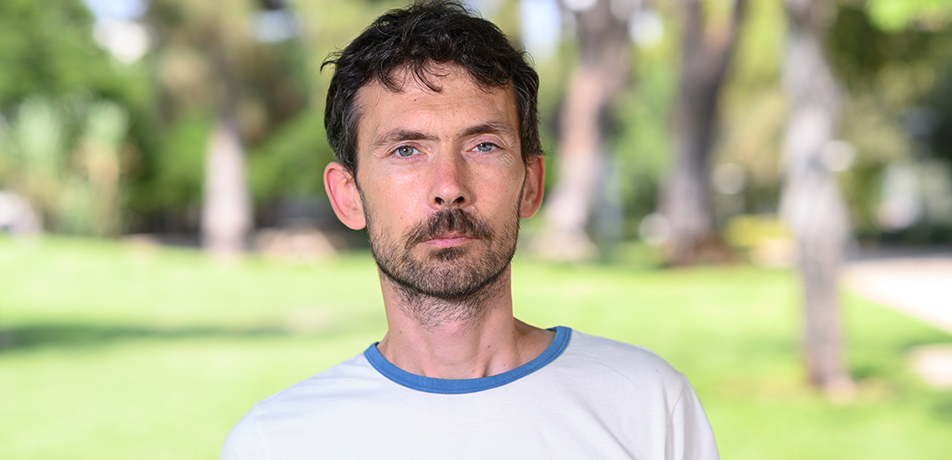Keeping quantum computing honest
Prof. Thomas Vidick is using complexity theory to test and verify quantum phenomena
New scientists

Prof. Thomas Vidick
Built in the early 1940s, the first modern computer used large vacuum tubes and magnetic drums for circuitry and memory and commanded an entire room. Fast forward a few decades, and computers have gone from being massive machines that could only perform rudimentary calculations, to highly sophisticated gadgets that fit in the palm of our hand.
Now, the world is edging closer to an even greater leap forward in computing capabilities, one that would take humanity into the quantum age. To understand why quantum systems would prompt such a huge paradigm shift in computing, it is first important to understand the fundamental differences in the way traditional and quantum systems process information.
Classical computing is straightforward—the information is coded into bits, either “0” or “1”—off or on. However, qubits—the bits of a quantum computer— can exist as both “0” and “1” simultaneously. While this may not seem particularly significant, this distinction could exponentially increase the capabilities of quantum computers. Researchers in this field have shown that this unique capability could be leveraged to solve many tasks considerably faster than the best classical algorithms currently known.
The exponential complexity that gives quantum computing its vast potential, however, also presents some fundamental challenges, chief among them the issue of whether results that are achieved can be trusted. Can these computations be verified, or is reliable testing restricted to classical systems? These are some of the questions that drive the research of Prof. Thomas Vidick, a new principal investigator in the Department of Computer Science and Applied Mathematics.
Laying the groundwork: Using interactive proofs and complexity theory to study these problems, Prof. Vidick aims to develop scalable, noise-resistant, and trustworthy protocols for verifying quantum devices. If successful, his work could go a long way toward realizing the potential of quantum computing for scientific discovery, security, and technology, and would lay the groundwork for future applications, such as a quantum internet.
Small quantum computing devices, such as Weizmann Prof. Roee Ozeri’s ion-trap quantum computer, are now able to implement miniature quantum algorithms, and it seems only a matter of time before these devices reach a scale where they can no longer be simulated by classical computers. This is precisely the type of device that would benefit from Prof. Vidick’s efforts to develop verification tools.
"The question of quantum computing becoming a viable computational method has very recently shifted from ‘if’ to ‘when,’” Prof. Vidick says. “As quantum devices acquire more qubits and gain more computational power, an even wider gap between quantum and classical resources will be created and necessitate stronger testing and certification procedures.”
Verifying quantum computations is also vital for quantum cryptography. When quantum computers begin sending encrypted information, a way to verify the validity of the data received on either end will have to be devised, to prevent a malicious third party from intercepting the communication or tampering with the server. In his past research, Prof. Vidick studied one of the basic questions in quantum cryptography: how to create a shared secret key that is impossible to crack, even if hackers intercept communications and have access to a quantum computer—a method known as quantum key distribution. He tackled this issue on the theoretical level, developing models to analyze all the ways that a hacker may try to intercept a quantum key.
Beauty in order: Hailing from Belgium, Prof. Vidick’s first love was mathematics, but after earning his undergraduate degree, he experienced a bit of an existential crisis.
“Math always fascinated me, even in primary school,” he says. “It came easily to me, and I found the orderliness of it beautiful. But after completing my bachelor’s degree, I no longer knew why I was studying these abstract theories. I could no longer connect the dots between the question I was studying and the physical reality that I felt it should be based on. Physics, on the other hand, describes the entire world; so I thought, here is a field that is related to math, but comes with a concrete reason for devoting my energy to it.”
Pursuing his new career path as a master’s student at Paris Diderot University, Prof. Vidick says he always thought he would end up working in Paris. But when the opportunity presented itself and he was accepted as a PhD student at the University of California, Berkeley, he decided to remain on the other side of the ocean for his postdoctoral studies at the Massachusetts Institute of Technology and his professorship at the California Institute of Technology.
“After spending 14 years in the United States, I wanted to return to Europe,” Prof. Vidick says. “But there weren’t so many options in Europe to pursue what I was interested in. Weizmann, as everyone knows, is an excellent institution and there’s great opportunity for growth here. The support it gives its scientists, the caliber of the student body, the excellence of my colleagues, and the size of the Institute—these were the reasons that I chose to come to Weizmann over anywhere else.”
Prof. Vidick joined the Weizmann faculty in September 2022.
Education and select awards:
• BSc, École Normale Supérieure, Paris (2007)
• MSc, Paris Diderot University (2007) • PhD, University of California, Berkeley (2011)
• Postdoc, Massachusetts Institute of Technology (2013)
• Presidential Early Career Award for Scientists and Engineers from the US National Science Foundation (2016); Associated Students of the California Institute of Technology Teaching Award (2017-2018); Canadian Institute for Advanced Research (CIFAR) Azrieli Global Scholar (2017-2019); Simons Investigator Award in Theoretical Computer Science from the Simons Foundation (2021)
Appointments:
• Assistant Professor (2014-2017), Associate Professor (2017-2018), Professor (2018- 2022), California Institute of Technology, Department of Computing and Mathematical Sciences